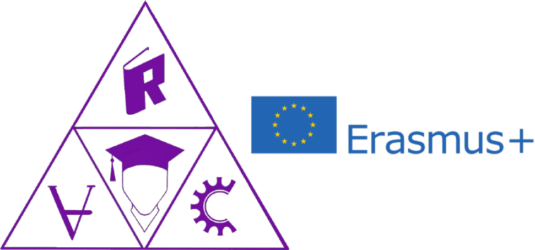
AIM
The project ARC (Automated Reasoning in the Class) aims at developing teaching material (text and software) and good practice recommendations for using automated reasoning tools in university teaching of Mathematical Logic, Automated Theorem Proving, Formal Methods, and related subjects.
The project is funded by the European Commission in the frame of the Erasmus+ programe.
The main objective of the project is to improve the education of Computer Science students in fields related to Computational Logic, by creating innovative and advanced learning material that uses Automated Reasoning and by training a large number of academic staff in using this in a modern way. Consequently, this will increase the knowledge and skills of Computer Science graduates in Computational Logic, and this will have a positive impact on the safety and reliability of software.
Thus indirectly the project objectives include the effects of increased software reliability: virus elimination, online safety, better detection of negative online phenomena (fake news, cyber-bullying, etc.), and other.
This goal will be achieved by the following activities:
A1: ARC Book production as intellectual output containing the novel learning material (to address problems from real life, based on novel principles of problem based learning, and relevant to the labor market, to include current and future research directions, to develop advanced software tools and to make use of them),
A2: Training of academic staff in teaching using the book, by 5 Training Events,
A3: Training of students using the learning material, at the partner institutions (in aproximative 21 courses over 4 semesters, more than 5000 students) and at ARC Summer School (20 students),
A4: Evaluation of the learning material using the experience from the student courses and from the ARC Summer School,
A5: Dissemination by the International Symposium on ARC (multiplier event), the ARC Page on the WWW, and the ARC Interest Group,
A6: Management by the ARC Project Management Team and auxiliary personnel.
Because of all these elements of innovation stated above and because experts in the field will develop the ARC book and the necessary tools, this project will improve significantly the process of teaching Computational Logic topics. Also, since the material will be open source and largely disseminated, we expect to have a significant national and international impact.
Our project will contribute to increase the visibility of the Erasmus+ activities for the general European public.
The main output of the project will be a book accompanied by interactive
exercises, with tentative title “Computational Logic: A Practical Approach”.
The key persons in the project:
Isabela Dramnesc, West University Timisoara, Romania
Tudor Jebelean, JKU Linz, Austria
Erika Abraham, University of Aachen, Germany
Sorin Stratulat, Universite de Lorraine, France
Gabor Kusper, University of Eger, Hungary
are experts in the various themes above.
According to the rules of the Erasmus+ programe, all intelectual output of the project will be publicly available.
